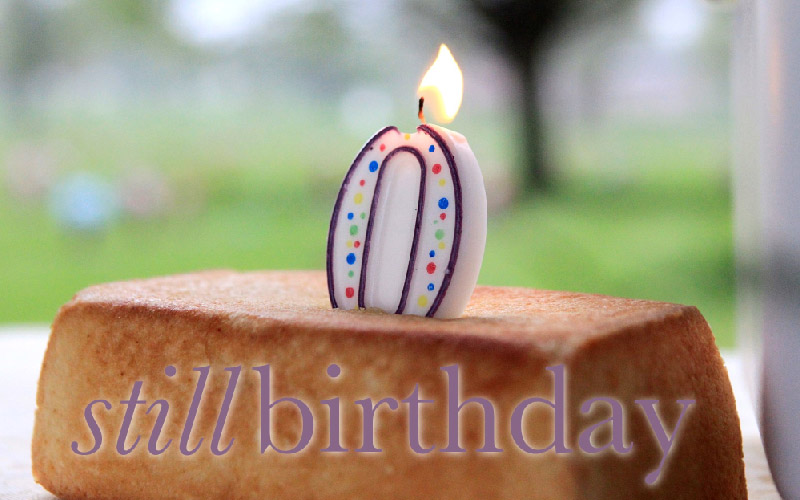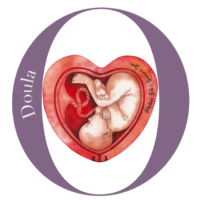.
.
More Information:
Please, visit our birth planning page as well
which has additional birth education.
The Birth Plan:
This plan is specific to early pregnancy (under 20 weeks) home birth.
Note that different aspects of the delivery will be different for the different gestational ages.
For babies about 10-19 gestational weeks:
Things to Have
Labor
__support person!
__phone (to call 911 if necessary)
__heavy maxi pads (no tampons)
__camera
__plenty of water to stay hydrated
__music and other soothing birth items and options, like massage, affirmations
__do not use a douche or enema to help labor progress
__several large old towels to catch blood in the birth space, especially around toilet
__ small fish net (or plastic bowl, colander, ladle or cheesecloth – you can rest the colander inside the toilet) to help screen or scoop from toilet
__latex gloves (dish or medical gloves) to help scoop from toilet
The Welcoming
__large sheet of tinfoil (or plastic wrap or wax paper) as a stable place to view your baby after birth
__saline (contact solution) to use with clear cup
Making saline water is simple
Boil two cups of water per 1 teaspoon of salt. Once boiled, cool. The salt acts as a preservative and can maintain the integrity of the physical form for longer bonding time.
__clear shot glass or small vase (with saline solution: this helps restore your baby’s fullness and can magnify his or her shape so you can see him or her more clearly)
__tweezers or toothpicks to help move fragmented pieces of placenta or sac without sticking and causing unnecessary ripping/sticking
Preparing for The Farewell
__if you are planning on bringing everything that you deliver to the hospital, including as much of the placenta as you can, you will need a large, gallon sized ziplock baggie (and a non-see through grocery sack or bag to place that in)
__special jewelry box or other special box for a coffin for your baby to be placed in
__a small square of pretty gift tissue with a little note that you can flush, or incorporating water in another way, particularly if flushing is inevitable
__be prepared for a possible ER visit
Things to do Before the Birth (while laboring)
__set up your bathroom and/or another room as the birth space. Fold edges of foil to make a large tray, and place this on your counter.
__call friends and family for support.
Things to Expect
__Sometimes bleeding will begin, and then completely stop (for hours or even days) before resuming.
__bleeding should not fill a heavy maxi pad sooner than one hour at any time during the labor.
__the placenta is between the size of a pear to a grapefruit, and will probably be expelled in grape sized pieces.
__very small, fleshy, flaky pieces of discharge are probably pieces of your uterine lining.
__every time you use the restroom, once bleeding has begun, you may expel pieces of placenta.
__it is easier to retrieve everything that is being expelled, to look through and identify your baby, if you hold the small fish net or colander underneath your vagina in the toilet bowl, than it is to allow everything to first be caught in the toilet and attempt to retrieve it after (because everything may be slippery)
__labor will likely peak right before the birth of your baby, at which time, for the first hour postpartum, bleeding may increase, but you should not fill a heavy maxi pad sooner than a half hour, during the first hour (after the first hour, bleeding should begin to taper off).
__know that your baby may not be born intact. He or she may physically be very unrecognizable.
__if you baby is born in his or her amniotic sac, he or she may appear to look very similar to the pieces of expelled placenta.
__when your baby is born, place him or her on the foil tray you have set up on your bathroom counter. Using the tweezers and foil creates a place you can gently pull back some of the additional sac fragments to simply look upon the physical form of your baby. Because physical changes happen rapidly, placing your baby into the clear jar of saline water can help draw out the fullness of his form again and continue to preserve him. You’ll need to change this water at least every 4 hours if you choose to keep him in here longer.
__don’t use toilet paper or Q tips to dry baby, as it may stick and pull at your baby’s delicate skin. Instead, use tweezers, a toothpick, or your finger, and very gently move your baby away from the small puddle of blood, until he or she is more dry. Know that your baby will lose his shape very quickly after birth.
__Utilize all of the special plans you have, including saving mementos, holding your baby.
__name your baby, take photographs
__when you are ready, place your baby in the small Tupperware container and then in the special box.
__invite a spiritual advisor/leader and friends and family to join you after the baby is born (please consider though, that they may not choose to see your baby). See the “Professionals/Volunteers” link at stillbirthday.com for additional services to consider.
After the Birth
If you leave to the ER
__bring a fresh change of clothes with you.
__Have the photo you brought placed with your baby.
__Ask if baby can be swaddled in the blanket you brought (or just leave the blanket there)
__ask if you will be able to take your baby home with you, or if you can have your baby returned to you after any genetic testing is done.
At Home
__Have someone planning on spending the night with you. Perhaps consider having a friend spend the night with you, so that your husband can go home, prepare the house, and rest.
__You will still have lochia (the remaining blood from inside the uterus, which may be shed for the next 1-3 weeks).
__Watch for signs of postpartum depression (PPD) or secondary vaginitus.
__Be easy on yourself, your body, and on your recovery.
__Talk to your trusted spiritual advisors, your husband, and trusted mentors and friends about all of your feelings.
__*Visit stillbirthday.com for “Farewell Celebrations” and for “Long Term Support” resources.
Babies about 4-10 gestational weeks
Things to Have
__The same supplies as listed above
Things to Expect
__labor (bleeding) should begin within two weeks of the death of your baby, but could take longer. Natural induction could include drinking raspberry tea.
__it will be very unlikely that you will be able to identify or retrieve your very tiny baby (flushing is very likely inevitable)
__name your baby
__include a trusted spiritual advisor and friends and family if you wish. See the “Professionals/Volunteers” link at stillbirthday.com for additional services to consider.
After the Birth
If you leave to the ER
__bring a fresh change of clothes with you.
__Have a photo you brought placed with your baby.
__Have a blanket or other special item left with your baby.
__ask if you will be able to take your baby home with you, or if you can have your baby returned to you after any genetic testing is done.
__bring a teddy bear or other item that you can hold on the car ride home.
At Home
__Have someone planning on spending the night with you. Perhaps consider having a friend spend the night with you, so that your husband can go home, prepare the house, and rest.
__You will still have lochia (the remaining blood from inside the uterus, which may be shed for the next 1-3 weeks).
__Watch for signs of postpartum depression (PPD) or secondary vaginitus.
__Be easy on yourself, your body, and on your recovery.
__Incorporate your spiritual beliefs, your husband, and trusted mentors and friends about all of your feelings.
__*Visit stillbirthday.com for “Farewell Celebrations” and for “Long Term Support” resources.
Please click the links for more support















